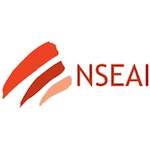
Educational Inequity
Jan 06, 2023EDUCATIONAL INEQUITY IS THE MOST PRESSING
SOCIAL PROBLEM FACING OUR COUNTRY AND
THE CIVIL RIGHTS ISSUE OF OUR DAY
To solve this problem one must be an expert in IEP development. The goal is to support students learning academically, emotionally, behaviorally, socially, and adaptive skills so that they will be truly prepared for postsecondary success. We must have high expectations with appropriate supports so that they are able to pursue their dreams through self-determination. We must attend to the whole child.
ALL STUDENTS DESERVE ACCESS TO A GREAT EDUCATION.
In an atmosphere of diversity, equity, and inclusion we can create student success, anti -racism environments, and address inequities in academic achievement. We can expand student choices and cultivate schools where every student is respected, valued, affirmed, nurtured, supported and held to high expectations. By understanding how to acquire and implement special education services and section 504 accommodations, students can achieve academic success across all subjects and skills needed for them to achieve their dreams.
What needs to be done:
- Parents must be able to lead student achievement through the IEP process since the US department of Education says that Parents are the best advocates for their children
- Monitor and respond to students’ progress monitoring
- Assure compliance with both federal and state regulations
- Develop effective IEPs that address academic, behavioral, social, and functional needs
- Develop appropriate functional behavioral assessments that are respectfully focused on students achieving their goals and not on compliance
- Assure that IEPs are implemented with fidelity across all settings and persons
- Provide open and honest professional communication with all members of the IEP team (educators, administrators, and related service providers)
- Engage systems that support those who implement the IEP so that the student reaches their goals
- Assure that manifestation determination meetings do not violate student and parent rights and are not used as a way to dismiss responsibility for implementation of appropriate IEPs and 504 plans for the student.
- Assure that parents are engaged and active members of the IEP team and school culture so that appropriate supports are provided to students in achieving their goals
How is this done:
- An Education Advocate must have a strong knowledge of instructional strategies that address students with disabilities not just neurotypical populations
- The Education Advocate must have familiarity with best practices in special education, behaviors, social emotional skill building, mental health, and adaptive functional outcomes
- The Education Advocate must have the ability to facilitate the IEP team into becoming a results-oriented team that uses flexible thinking and is willing to do whatever it takes to assure a student success
- The Education Advocate must promote the use of detail orientation, high organizational competencies, and analytical skills by every team member so that there is a willingness to take accountability
- The Education Advocate must have knowledge of minimum state academic requirements.

The IEP DEVELOPMENT EXPERTS
Make sure you SUBSCRIBE to the blog.
NSEAI's online courses efficiently lead parents and professionals to an expert level of education advocacy in just 12 days of on-demand courses that you can do at your convenience.
OUR CHILDREN DO NOT HAVE TIME TO WASTE.
LEARN TO DEVELOP A CHILD-FOCUSED IEP CORRECTLY FROM THE START vs JUST ACCEPTING A LEGALLY SUFFICIENT ONE!
CHANGE THEIR LIVES NOW
AUTHORS
Marie Lewis is an author, consultant, and national speaker on best practices in education advocacy. She is a parent of 3 children and a Disability Case Manager, Board Certified Education Advocate, and Behavior Specialist Consultant. She has assisted in the development of thousands of IEPs nationally and consults on developing appropriately individualized IEPs that are outcome-based vs legally sufficient. She brings a great depth of expertise, practical experience, and compassion to her work as well as expert insight, vision, and systemic thinking. She is passionate and funny and she always inspires and informs.
MJ Gore has an MEd in counseling and a degree in elementary education and natural sciences. She worked as a life-skills and learning support teacher She has been honored with the receipt of the Presidential Volunteer Service Award. She is the Director and on the faculty at the National Special Education Advocacy Institute. Her passion is social justice, especially in the area of education. She is a Board Certified Education Advocate who teaches professional advocates, educators, and clinicians the best practices in education advocacy.
